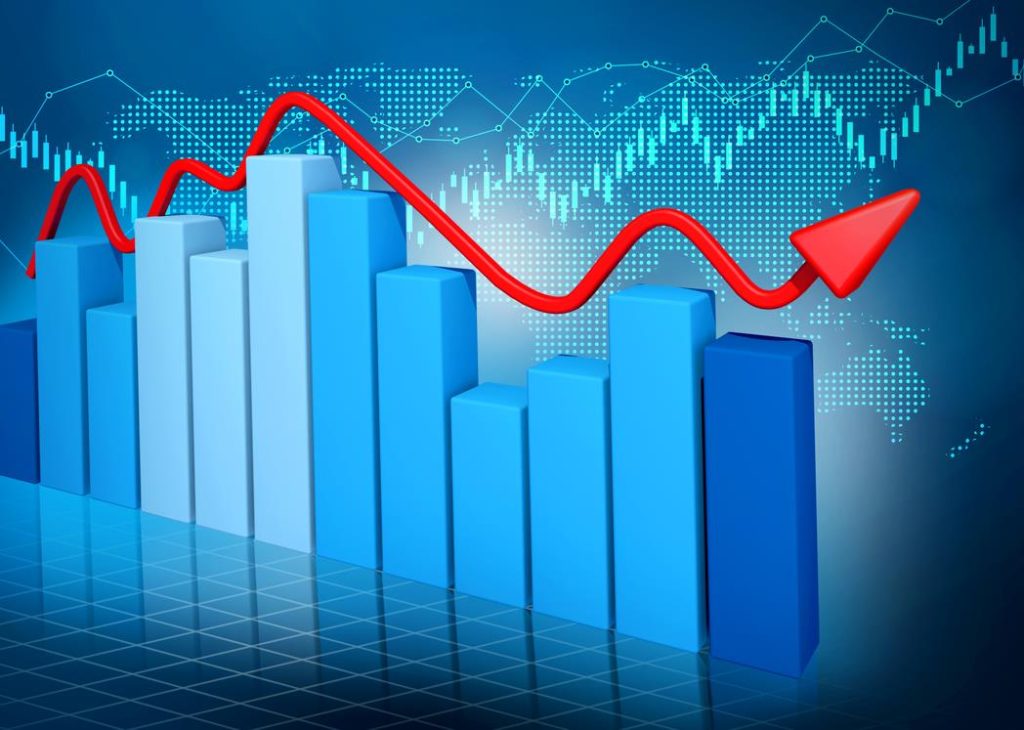As the world faces a period of heightened economic uncertainty, concerns about a potential global recession are growing. A range of factors, including rising inflation, supply chain disruptions, geopolitical tensions, and central banks tightening monetary policy, have led to a perfect storm that threatens the stability of global markets. With economic downturns historically causing significant market volatility, many investors are asking: how should they respond to these mounting risks?
In this article, we’ll explore the potential causes of a global recession, how it could impact various sectors and asset classes, and most importantly, the strategies investors can adopt to safeguard their portfolios. The road ahead may be rocky, but with the right approach, investors can navigate these challenges effectively.
1. Understanding the Rising Risk of Global Economic Recession
The Factors Driving Recession Fears
Several global factors are converging to heighten recession fears. While no single cause can explain the threat of a downturn, the following factors are contributing to growing economic uncertainty:
- Inflation Pressures: Rising inflation has been one of the most prominent concerns globally. Driven by supply chain disruptions, higher energy costs, and post-pandemic demand surges, inflation has caused central banks to tighten monetary policy by raising interest rates. These hikes can slow economic growth, as higher borrowing costs dampen consumer and business spending.
- Geopolitical Tensions: Geopolitical events, such as the ongoing war in Ukraine, rising tensions between the U.S. and China, and global political instability, create additional uncertainty. These factors disrupt global trade, increase energy prices, and fuel investor anxiety, all of which can push economies into contraction.
- Slowing Growth in Major Economies: Key economic powers, such as the U.S., China, and the EU, are showing signs of slowing growth. In particular, China’s strict zero-COVID policies have delayed its economic recovery, and the EU faces significant challenges related to energy supply disruptions and inflation.
- Debt Levels: Governments and businesses around the world have accumulated significant amounts of debt, which becomes increasingly unsustainable during periods of high inflation and economic stagnation. Countries with high debt levels may face challenges in maintaining fiscal stability, adding to recession fears.
What Does a Global Recession Mean for Markets?
A global recession typically brings widespread economic slowdown, leading to lower corporate earnings, higher unemployment, and declines in consumer confidence. In the financial markets, this often results in falling stock prices, increased volatility, and reduced liquidity. Recessions tend to hit sectors like consumer discretionary, real estate, and financials the hardest, while safe-haven assets such as bonds and gold may perform better in such conditions.
2. How a Global Recession Could Impact Various Asset Classes
Equities (Stocks)
In a recessionary environment, stock markets tend to face downward pressure. Earnings growth slows, and investors become more risk-averse. Historically, equities, especially growth stocks in sectors like technology, suffer as investors shift to safer assets. The volatility during recessions can also lead to significant fluctuations in stock prices, making it difficult for investors to predict short-term performance.
However, not all stocks are affected equally. Defensive sectors, such as utilities, healthcare, and consumer staples, tend to outperform during recessions because their products and services are essential, regardless of the economic climate. Companies in these sectors are more likely to maintain stable earnings, making them a safer bet during times of economic uncertainty.
Bonds
Bonds, especially government bonds, are often seen as safer investments during a recession. When economic growth slows and central banks lower interest rates to stimulate the economy, bond prices typically rise, and yields fall. This makes bonds an attractive option for risk-averse investors.
However, with inflation still high in many countries, the real return on bonds can be reduced, especially if the central bank’s interest rate hikes continue to outpace bond yield increases. Corporate bonds, particularly those with lower credit ratings, may also experience greater volatility during a recession due to heightened default risk.
Commodities
Commodities such as oil and gold can behave differently during recessions. Oil prices tend to fall during global recessions due to decreased demand, although geopolitical tensions or supply disruptions can lead to temporary price spikes. On the other hand, gold is often considered a safe haven asset during times of uncertainty, as investors flock to it in search of stability.
Agricultural commodities and industrial metals, however, may face headwinds as demand from industries like manufacturing slows down. The outlook for these commodities largely depends on the depth and duration of the recession.
Real Estate
The real estate sector can face challenges during a recession, particularly in the residential and commercial markets. Rising interest rates and a potential credit crunch can make borrowing more difficult, leading to lower housing demand and declining property values. In commercial real estate, businesses struggling with reduced revenues may scale back office space, leading to increased vacancies.
However, certain types of real estate investments, such as REITs (Real Estate Investment Trusts) focused on healthcare facilities or data centers, may remain resilient, as demand for these services tends to be less sensitive to economic cycles.

3. What Can Investors Do in the Face of Rising Recession Risks?
Diversify and Hedge Against Risk
The most important strategy for investors facing recession risks is diversification. A well-diversified portfolio, spread across different asset classes and geographies, can help mitigate the impact of a downturn. By holding a mix of stocks, bonds, commodities, and real estate, investors can cushion their portfolios against losses in any single sector or market.
For example, if equities decline, bonds may perform better, and commodities like gold may act as a safe haven. Geographical diversification is also critical, as economic conditions vary from region to region. Investors should consider exposure to international markets that may be less affected by the downturn in the U.S. or Europe.
Hedging strategies, such as using options or investing in volatility index products (like the VIX), can also help protect against sharp market declines. These tools allow investors to profit or limit losses during times of heightened market volatility.
Focus on Defensive and Dividend-Paying Stocks
In an environment of economic slowdown, defensive stocks—companies in industries like healthcare, utilities, and consumer staples—are likely to perform better than more cyclical sectors. These companies provide essential products and services that people continue to need regardless of the economic environment.
Additionally, dividend-paying stocks can offer stability and income, even during recessions. Companies with strong balance sheets and a history of consistent dividend payments tend to weather economic downturns better than those reliant on capital appreciation. Dividend stocks also provide a cushion against market volatility, as they offer a steady stream of income.
Consider Fixed Income and Safe-Haven Assets
Bonds, particularly government bonds from stable economies, can be an attractive option during a recession. U.S. Treasury bonds and other high-grade bonds tend to perform well as investors seek safety in uncertain times. However, as inflation remains a concern, investors should focus on inflation-protected securities like Treasury Inflation-Protected Securities (TIPS) to help preserve purchasing power.
Gold, often seen as a hedge against inflation and economic uncertainty, could also play a role in your portfolio. Gold prices tend to rise during times of financial stress, making it an ideal asset to hold during a global recession.
Be Prepared for Volatility and Keep a Long-Term Focus
During a recession, market volatility is almost inevitable. It’s essential to stay calm, avoid making impulsive decisions, and focus on your long-term investment goals. Recessions are part of the economic cycle, and while they can cause short-term losses, markets generally recover over time.
Investors should avoid panic selling and instead use downturns as opportunities to rebalance their portfolios, buy quality assets at lower prices, and take advantage of discounted opportunities in the market.
4. Conclusion: Navigating the Risk of a Global Recession
The risk of a global recession is real, and the potential for increased market volatility is high. However, by staying informed, diversifying your investments, and adopting a strategic approach to risk management, you can navigate this uncertain period effectively. The key is to focus on long-term goals, remain patient, and avoid making emotional decisions in response to short-term market fluctuations.
While economic downturns can be challenging, they also present opportunities for savvy investors. By carefully selecting defensive assets, hedging risks, and maintaining a diversified portfolio, you can position yourself to weather the storm and emerge stronger when the market eventually recovers.



































